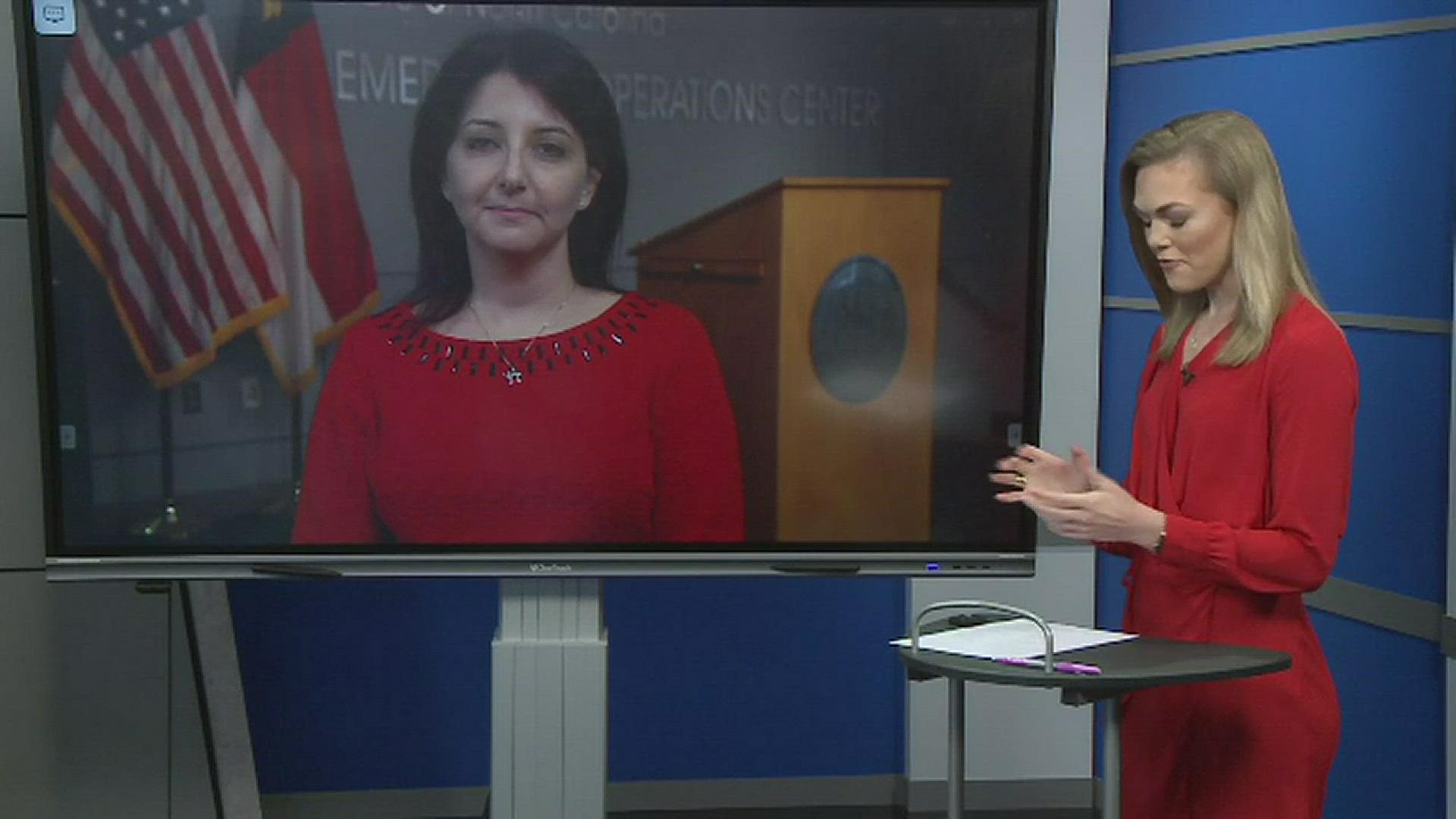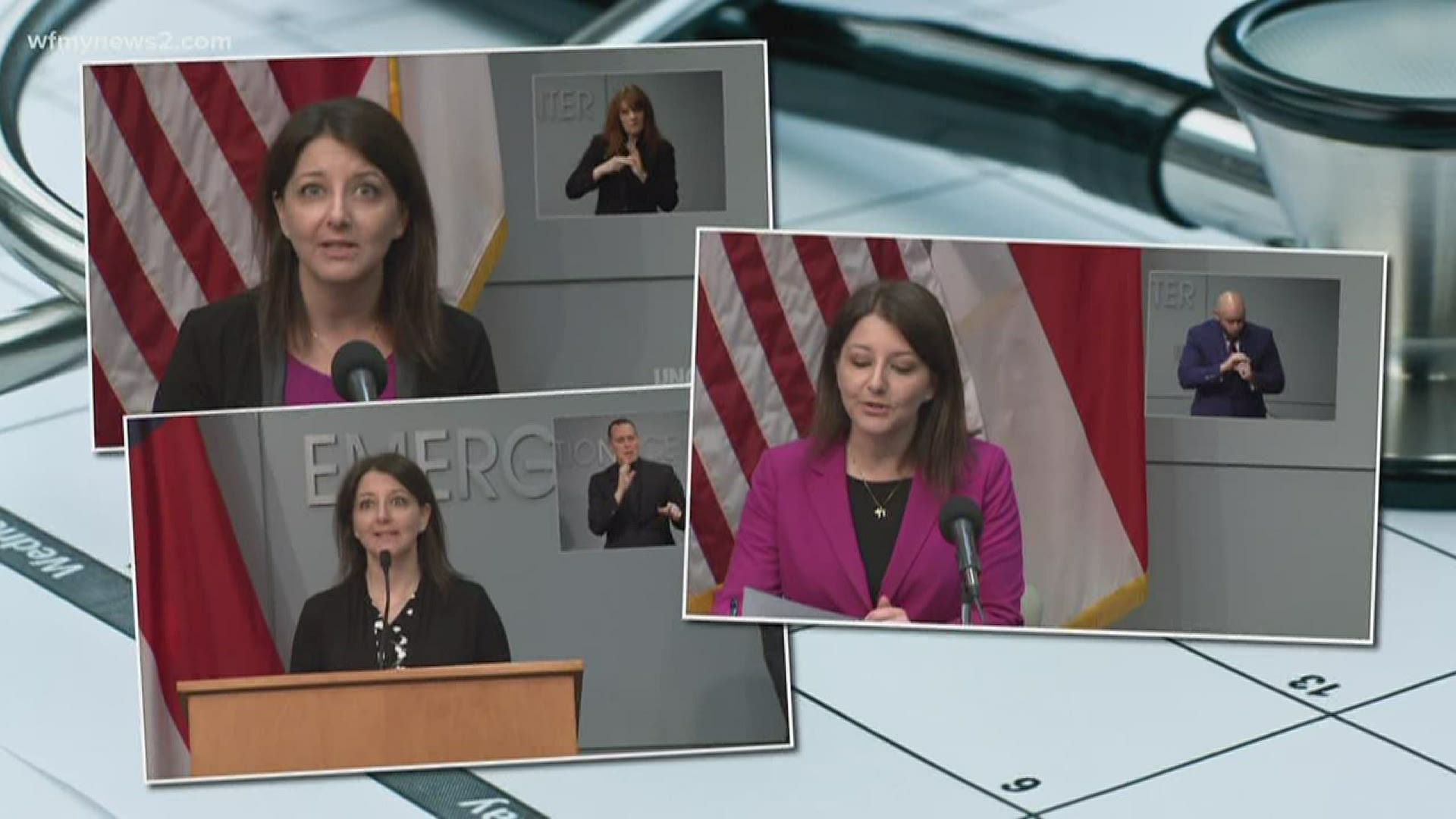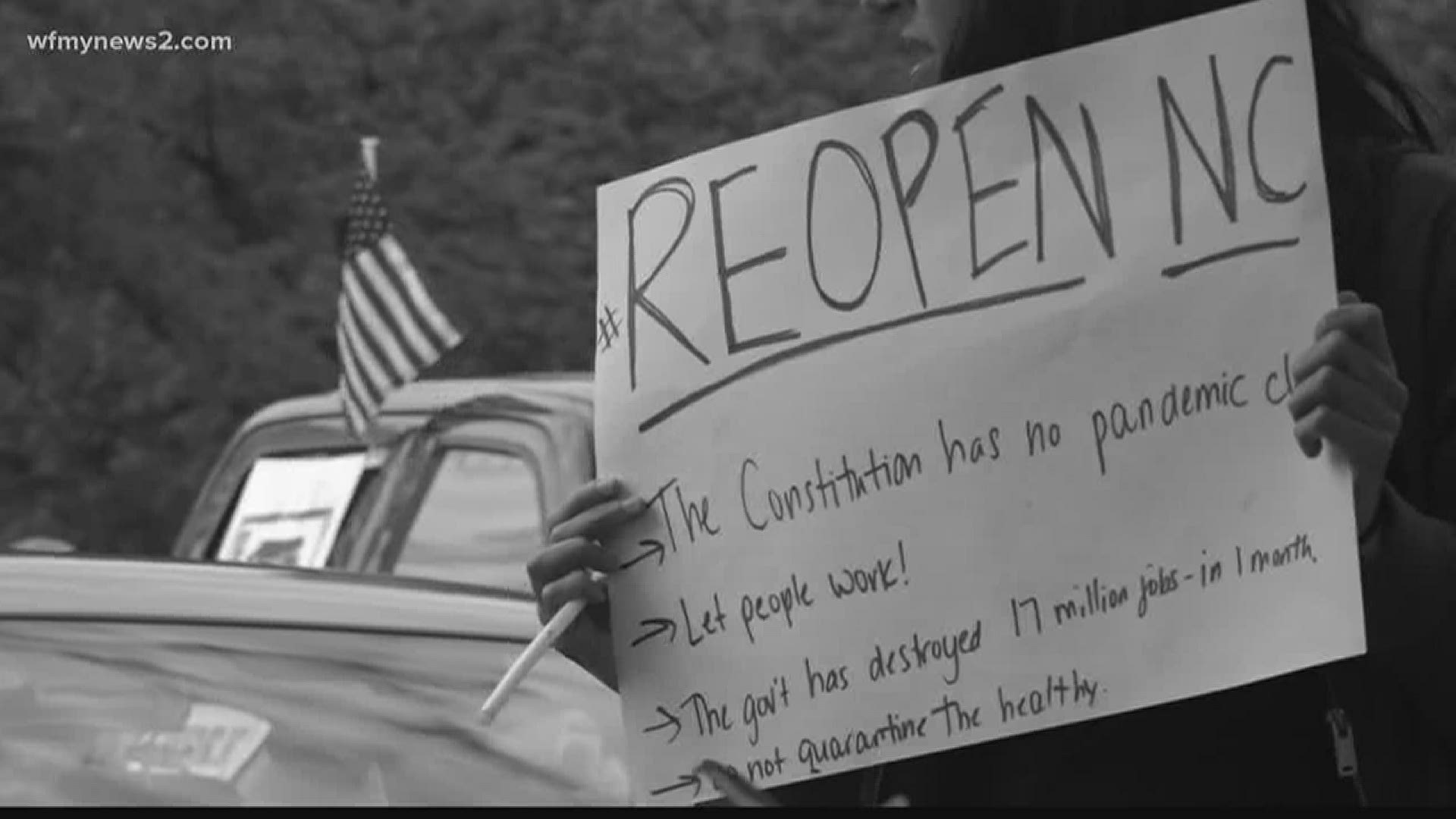NORTH CAROLINA, USA — North Carolina reported it’s first positive case of COVID-19 on March third. Over time things have certainly changed. Businesses closed, class was dismissed, and stay-at-home orders were put in place all to keep us safe. Behind all of those decisions was a team of state officials – thinking through every step - and one of the team leaders is Dr. Mandy Cohen, the Secretary of the State Department of Health and Human Services.
She says the state has been monitoring the virus since January – but the gravity of the situation hit when she saw images of the healthcare response in China.
"I think personally the time for me when I said, ‘This is not like any kind of response I’ve seen before,’ is when I saw a video that showed how the government in China stood up at hospital from the ground up in 10 days," Dr. Cohen said. "I was like, that made me sit up and take notice that this was coming in a very, very different way."
Now, weeks later, she’s helped navigate our state through an unprecedented pandemic – something she says no one could have fully prepared for but she felt ready to do.
"This is something no one has ever experienced before but I feel lucky that I’ve had a number of leadership roles at times of crisis."
Cohen graduated from Cornell University, received a medical degree from Yale and a Master’s in Public Health from Harvard. She’s an internal medicine doctor but became interested in shaping policy early on. Before she came to work for North Carolina, she was the Chief Operating Officer and Chief of Staff at the Centers for Medicare and Medicaid Services. Now, she’s shaping our state’s response to COVID-19 and doing her best to keep everyone safe, including her own family.
"I’m lucky to have the best husband in the world and, you know, we are lucky that our kids are doing great they’re learning a lot about the coronavirus in a very different way because of mom‘s job but they are wonderful," she said. "They also allow me to put into perspective all of this because we’re doing it for the folks that we love, for our family, for neighbors, for our community. So we’re faring well they were ups and downs like everyone else’s."
Dr. Cohen's reports at daily press briefings have been more optimistic in recent days as our state looks to ease restrictions and reopen in phases.
"I see the light at the end of this tunnel we’re going to start to ease restrictions but it’s going to take our collective action together to keep us moving forward and allow us to keep this virus spread low and allow us to start to move through the world."
Cohen and her team take a data-driven approach to making decisions. She emphasized the four benchmarks for North Carolina.
"We look at things like our surveillance data that tries to give us the most early detection on COVID-19 cases," she said. "We obviously look at day-over-day cases, we look at percent positive of the total tests we're doing, and we look at hospitalization as well."
Dr. Cohen says all four of those benchmarks are largely stable right now. She chalked it up to early and aggressive action by the state and said we've flattened the curve.
"Now it's time to think about how do we ease restrictions and continue to slow the spread of the virus," she said.
North Carolina won't reopen over night but in three gradual phases.
"We hope this first [easing restrictions phase] is going to be a short period of time two weeks maybe three assuming all of the trends move in the right direction we can go farther."
But what if the trends don't move in the right direction? Dr. Cohen and other members of the state task force say if the numbers don't continue on the same path we could see restrictions reinstated and even slip back a phase in the reopening process.
"There isn't an absolute number," she said. "We're going to watch it over a period of time and if we see a spike or a surge, particularly if we see that in one area of the state, we will have to impose or move toward stricter restrictions again."
The speed at which we reopen largely depends on our ability to test and trace cases of COVID-19. Dr. Cohen says there's still room for improvement but things are looking much better. We are averaging about 5,000 tests each day, up from 2,500 a few weeks ago.
"We want to keep that up and see it even increase. We want to make sure that we're targeting testing to people who have symptoms of COVID 19 - that's cough or fever - we want to also make sure that we are testing anyone who is in contact with someone who might have COVID 19 - that's where the tracing comes in," Dr. Cohen said.
In the Triad testing was slow to get off the ground due in part to a shortage of equipment but with the introduction of community testing and contact tracers, Cohen believes all of the data is moving in the right direction. All that's left, she says, is unity.
"The only way we do this though it's doing it together, right? Everyone has to do the things that slow the spread of the virus otherwise we put lives in jeopardy and we may put our state in jeopardy of having to move backwards," she said. "No one wants to do that, we want to move forward, we want to reignite the economy, we want folks to get back to work and to school. So there is a way to do this and we're putting together the guidance to allow us to do that, so I just encourage everyone to follow that guidance as much as possible because it's going to help us stop the spread and save lives as well as return to our lives at work at a play."



